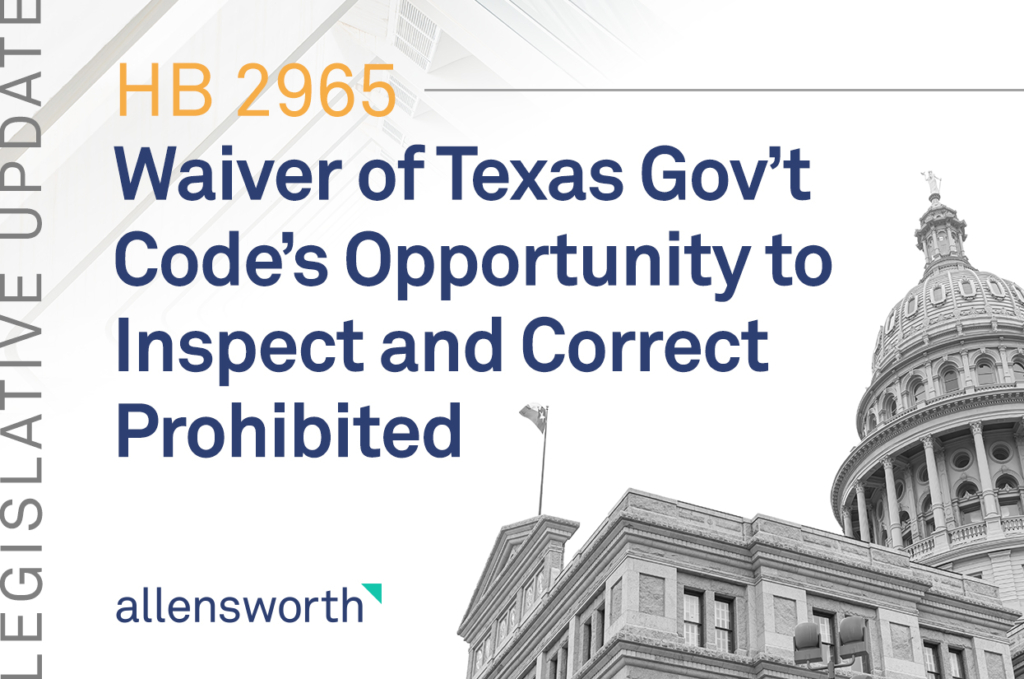
HB 2965 prohibits any waiver or purported waiver of Texas Government Code Chapter 2272, which requires government owners to give contractors a written report and the right to repair allegedly defective work on public buildings or works, with certain exclusions.
HB 2965 adds § 2272.0025 to the Texas Government Code, which prohibits any waiver or purported waiver of Texas Government Code Chapter 2272—by contract or otherwise. This prohibition will apply to Chapter 2272 causes of action asserted by governmental entities that accrue (1) on or after September 1, 2023, and (2) under a contract entered into on or after September 1, 2023.
The Texas Legislature created Chapter 2272 in 2019, which established certain procedural requirements that governmental entities must follow before bringing actions for alleged defects in improvements to public buildings or public works. This chapter categorically excludes personal injury, wrongful death, and survival claims; residential construction claims; Texas Department of Transportation contracts; projects that receive money from a state or federal highway fund; and civil works projects.
Before bringing a defect claim against a contractor, subcontractor, supplier, or design professional, Chapter 2272 requires a governmental entity (e.g., state, municipality, county, public school district, special-purpose district, and others) to do three things, the absence of which merits dismissal by a court, arbitrator, or other adjudicating authority (first without prejudice, and then with prejudice after future, non-compliant attempts):
- Provide to each party it has contracted with for the design and construction of the public structure a written report identifying the alleged defects to the structure at issue, describing the affected structure’s condition, and detailing any modifications, maintenance, or repairs to the affected structure;
- Allow each implicated party it has contracted with for the design and construction of the public structure (and known subcontractors/suppliers) a reasonable opportunity to inspect, for a period of 30 days after the written report is sent, any alleged defects identified in the written report; and
- Allow each implicated party it has contracted with for the design and construction of the public structure (and known subcontractors/suppliers) at least 120 days after the above-referenced inspection to correct or agree to correct the alleged defects identified in the written report.
There are certain exceptions to these requirements, such as if a contractor cannot provide payment and performance bonds for the repair work, or to make emergency repairs “to protect the health, safety, and welfare of the public or a building occupant.” The governmental entity is also under no obligation to repeat the process if the defect was not corrected, or any attempted correction resulted in a new defect.
HB 2965 is a straightforward bill that makes these statutory provisions un-waivable. The resulting effect is that a governmental entity cannot ask a party it contracts with for improvements to public buildings or public works to waive any part of Chapter 2272. And, if a contract does attempt to waive any of Chapter 2272’s provisions, that purported waiver is void. A governmental entity not complying with Chapter 2272’s requirements risks dismissal of its defect claim in its entirety.